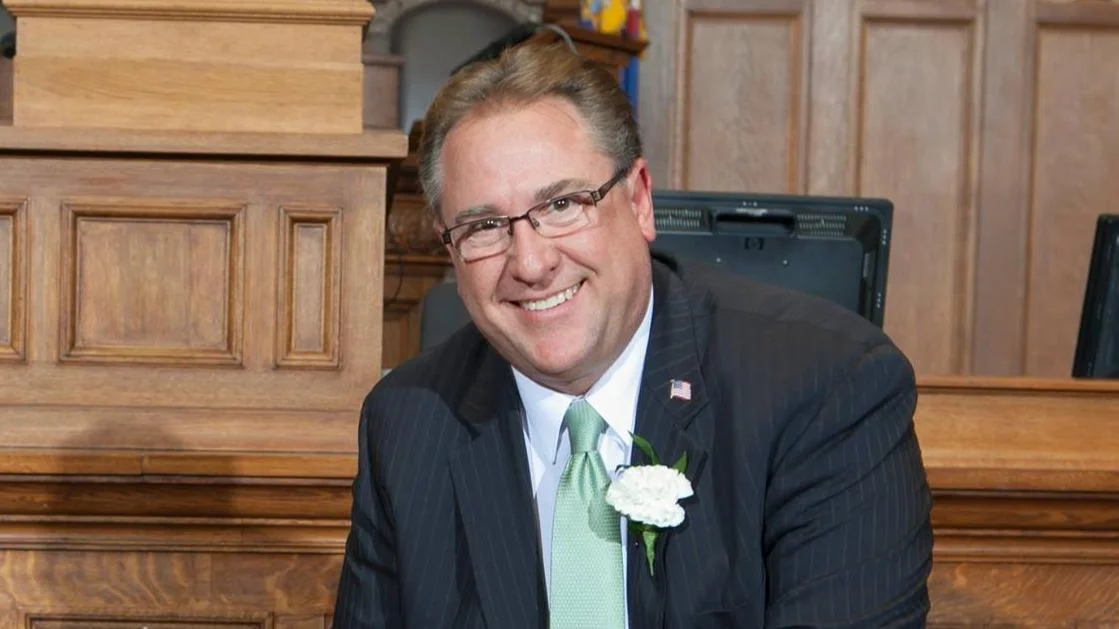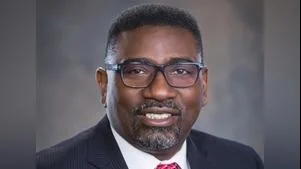Robert Brooks, Wisconsin State Representative for 59th District | Official Website
Robert Brooks, Wisconsin State Representative for 59th District | Official Website
A recent update from Wisconsin State Representative Rob Brooks (R-Haymarket) outlines the results of a budget survey and highlights legislative actions taken during the recent budget process. Brooks, who was elected in 2025 to represent the state's 59th House district, replaced former representative Ty Bodden.
According to Brooks, 524 constituents participated in the budget survey. He stated, "Thank you to everyone who took the budget survey. In total, 524 surveys were received. Your feedback is incredibly valuable to us. I have compiled the data gathered from the surveys from my district and created graphs for your viewing."
Brooks also referenced a new resource launched by the Wisconsin Institute for Law & Liberty (WILL), which provides performance and funding data on public school districts throughout Wisconsin. The updated WILL School Scorecard now includes an interactive map for comparing districts, tracking of chronic absenteeism, enrollment trends, disciplinary incidents, contextualized test scores, and inflation-adjusted revenue figures. Brooks encouraged community engagement with this tool: "This tool provides transparent, actionable information for anyone concerned about the future of Wisconsin’s schools. Please make sure you are aware of how your schools are doing and take any necessary action at the local level to ensure your children are being properly educated."
On fiscal matters, Brooks highlighted several measures passed by Assembly Republicans during budget negotiations. He said that $1.5 billion in tax cuts were secured for residents, targeting relief toward middle-class families and seniors through reductions in income taxes and eliminating taxes on residential natural gas and electricity. Additionally, he noted that more than $3.7 billion in proposed tax increases were blocked.
Specific tax changes included an exclusion for retirement income—$24,000 for single filers or $48,000 for married joint filers over age 67—and expansion of lower tax brackets.
Brooks emphasized support for agriculture as a key part of Wisconsin's economy and listed investments such as grants for dairy processors and mental health assistance for farmers.
In corrections and criminal justice funding, additional resources were allocated to maintain facilities and provide pay raises for staff. There was also funding aimed at supporting county circuit courts and pay progression programs for assistant district attorneys and state public defenders.
Healthcare received over $7 billion in funding across all sources in this budget cycle. An increase was approved in reimbursement rates for private duty nursing services provided by registered nurses (RNs) and licensed practical nurses (LPNs).
For education, Brooks stated that Republicans prioritized increased K-12 spending with allocations including over $500 million for special education aids and more than $50 million directed at high-cost special education needs. Mental health initiatives within schools also received support.
The University of Wisconsin System will see new requirements starting September 1, 2026: full-time faculty must teach a minimum number of credits annually; compliance will be audited each year.
Technical colleges will receive an additional $8.2 million in general aid funds.
Transportation projects were another focus area with a one-time transfer of $565 million from the general fund to transportation purposes and specific investment in freeway projects in southeast Wisconsin.
Brooks contrasted these measures with proposals from Governor Evers’ administration that were not included in the final budget—such as increased government hiring, expanded welfare spending, new taxes, Medicaid expansion, marijuana legalization efforts, gun control legislation proposals, climate change initiatives, adjustments to voter eligibility rules, among others.
He encouraged constituents to stay informed about legislative activity by signing up online: "One of the best ways to date with what is happening in Madison is to sign up for the legislature's . This service affords you with the opportunity to track legislative activities in Madison."
Brooks invited feedback from his constituents regarding these topics.
For more information about Representative Rob Brooks’ background as an elected official beginning his term in 2025 representing District 59 after Ty Bodden's tenure ended can be found here: https://ballotpedia.org/Rob_Brooks_(Wisconsin)






 Alerts Sign-up
Alerts Sign-up